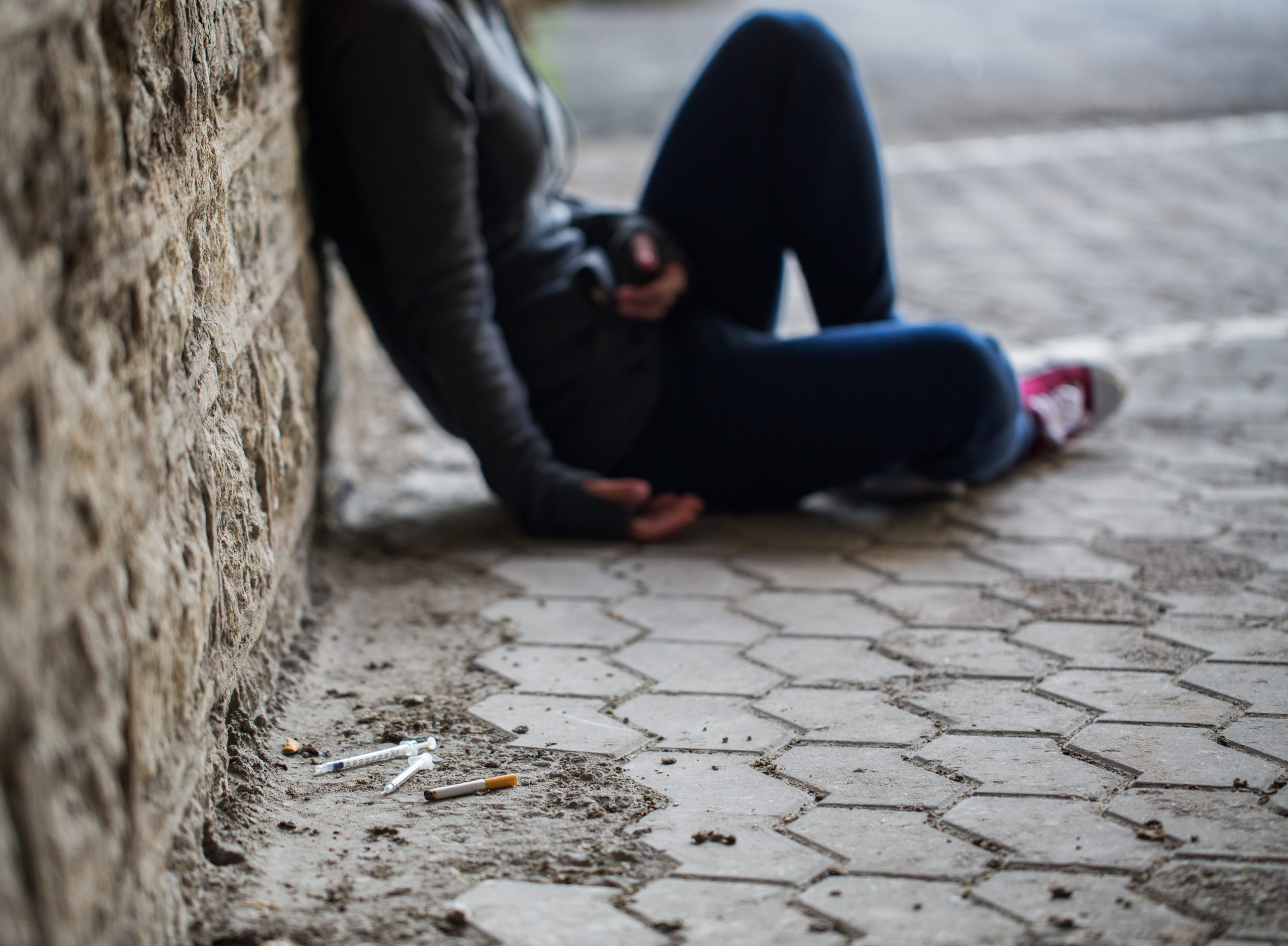Public drug use blights cities the world over, Brussels included. A staggering one in three residents reports regularly witnessing drug consumption in broad daylight. Non-profits dedicated to assisting the city's homeless population are overwhelmed, their resources stretched thin by the relentless tide of addiction.
Heroin, once the dominant drug on the streets of Brussels, has been eclipsed by the rise of crack cocaine, a substance so cheap that it costs less than €10 for a fleeting, ten-minute high. The drug's low cost, coupled with its easy availability fueled by a thriving trade at the Port of Antwerp, has led it to infiltrate every corner of the city.
Can the city clean itself up? While officials focus their efforts on security crackdowns in public places, a determined network of social actors is taking a different approach, trying to put empathy at the heart of Brussels' response to addiction.
One of them is GATE, a drug consumption room near Brussels-Midi station, allowing users to take their own drugs under the supervision of trained health professionals.
Visiting GATE's bright, airy, top-floor office, I meet a man with a raspy voice, dirty fingernails and stitches on his cheek. His demeanour is calm and personable.
The man is Mansif, and he is addicted to drugs, mainly using cocaine but like many others, he takes anything that comes his way: hash, MDMA and ketamine, to name but a few. Aged 39, he has fallen in and out of psychiatric hospital and prison over the last 20 years, just as he has fallen in and out of substance abuse.
Mansif is still using drugs, but he says GATE has helped him to get his addiction under control by limiting the quantities he takes every day. He pulls out a small capsule of white powder, demonstrating that he is aware of the amount he consumes compared to a constant, urgent intake of substances when in unstable surroundings.
"When you're taking on the street, you never stop," he says. "Everyone in Brussels knows each other. If I have a supply, I need to get rid of it as quickly as possible before someone steals it from me, or before the police search me."
Mansif describes an inherently violent lifestyle on the street, constantly searching for the next hit and warding off other drug users who don't let up as soon as they hear someone has a supply. He describes mixing cocaine with corrosive ammonia to create freebase cocaine (a knockoff version of crack cocaine), which can then be smoked through a pipe.
In contrast, GATE offers security. "I take a hit and I can relax. I'm not afraid of what might happen around me," Mansif says. Having opened in 2022, GATE allows drug users living precariously to snort, sniff, inject or inhale illicit substances under the supervision of trained medical staff, who offer advice about safer practices and intervene in the event of an overdose. Heroin users are given syringes while crack cocaine users can make crystals with baking soda instead of ammonia.
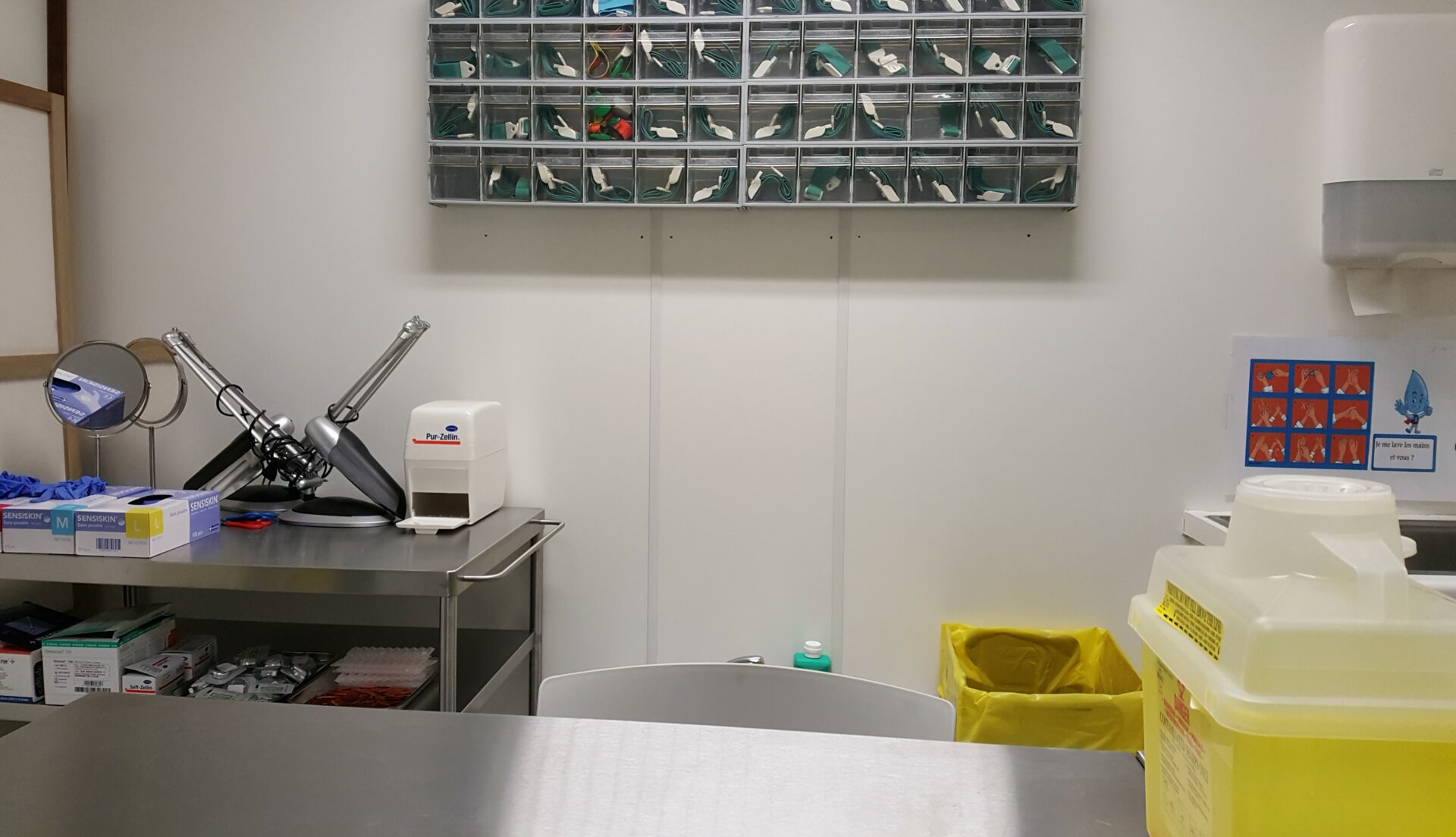
The rooms decrease street consumption of drugs and provide physical and mental health services to people with addictions. Credit: Belga / Jessica Defgnée
Just as important is GATE's emphasis on non-judgement. Staff and users are on equal footing and stigma is left at the door. "People treat me like a human being here. I've been treated like an animal in the past," Mansif says. "Other people think I'm a crazy drug addict, but I am treated with respect here."
He shows me pictures of himself from the four-year period when he managed to get clean. His Facebook photos show a young man, fresh-faced and handsome, in a loving relationship with a beautiful woman. Pain darkens his features as he regards this unrecognisable version of himself. "I feel like shit when I look at these pictures, but they give me hope about where I might go in the future," he says.
Hope and dignity
GATE's mission is to foment hope and restore dignity. It served 632 visitors in 2022, amassing 7,542 separate visits and 3,521 separate drug uses. Some 70% of the people who frequent the centre are homeless and 50% are sleeping rough. It is currently the only consumption room in operation in Brussels, but a second one is opening near Yser this year.
Many measures at GATE specifically aim to destigmatise addiction. Users register anonymously to mitigate fears of criminalisation. Staff make a point of going out for smoke breaks with visitors in order to foster a relationship that goes beyond the office.
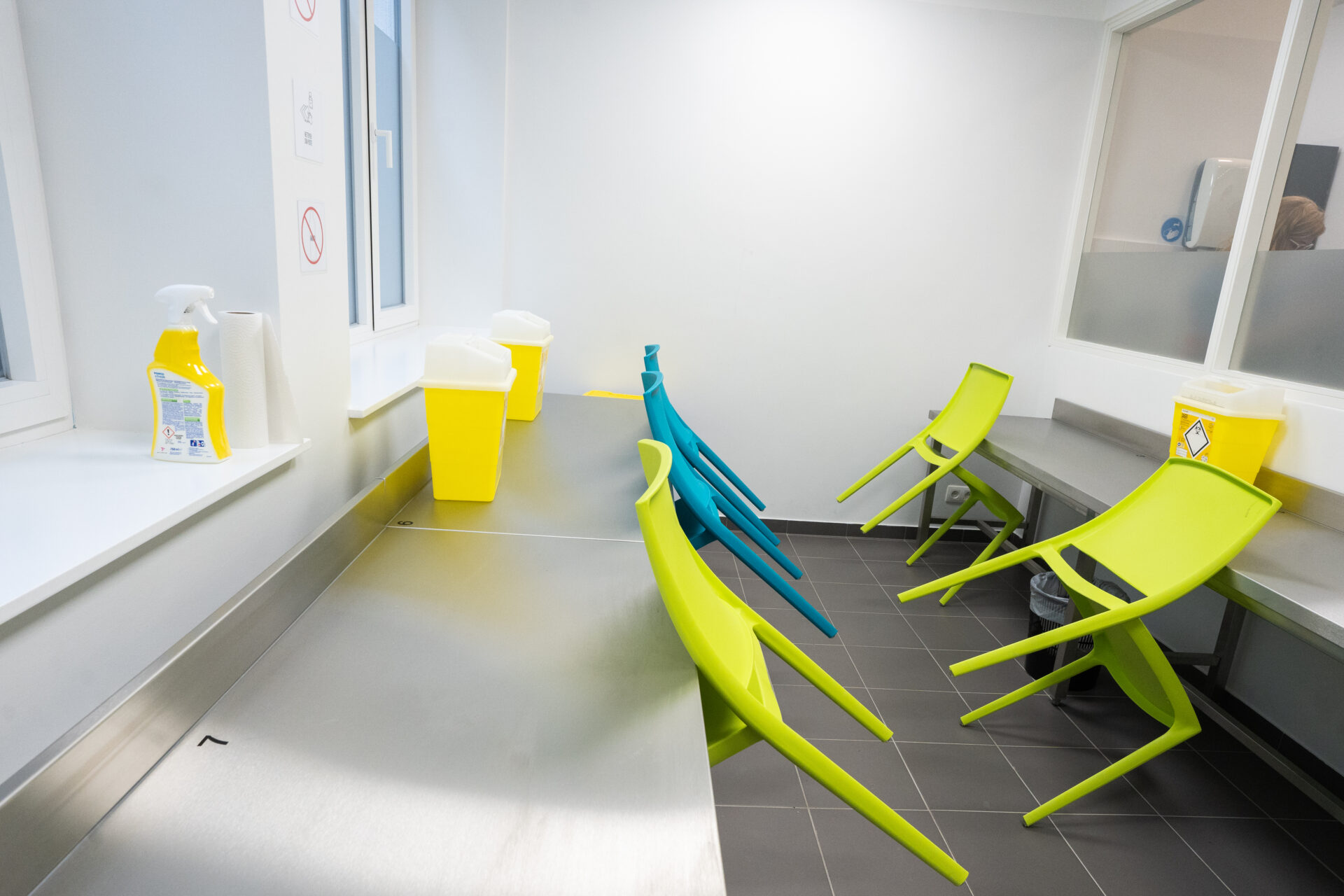
A ventilated room at GATE where users can smoke crack cocaine. Credit: Belga / Juliette Bruynseels
Speaking to several users in the small yard at the back, it is clear this atmosphere of non-judgemental fraternity encourages people to come back again and again: they feel seen as human beings rather than as drug addicts. "GATE is a refuge for us," Mohammed tells me.
"The aim is to bring back dignity," says coordinator Maïté Deprez. "When you don't have self-esteem, you can't imagine recovery."
Transit, the non-profit co-running GATE with La Maison d'Accueil Socio-Sanitaire, is battling the narrative that drug rooms facilitate drug use, spelling out what a "harm-reduction approach" to drug addiction means.
By providing a safe space and materials such as clean syringes, Gate prevents overdoses, reduces the risk of HIV and Hepatitis-C (often caught through dirty needles) and provides a port of entry to care.
Aiding recovery
GATE is part of a rich network designed to cater to drug users' social and health needs. Over in Saint-Gilles, the non-profit DUNE serves the same community with a specific focus on making individuals struggling with addiction an active participant in their own recovery.
The organisation's holistic care plan consists of medical and psychiatric support (endorsing the same harm-reduction approach as GATE) and community outreach. Initiatives such as radio, sports, women’s spaces, focus groups and bike repair workshops all aim to reintegrate the individual into the society from which they are so often excluded.
"We know all our visitors by their first name," says Charlotte Bonbled, DUNE's head of communications. "Some of them are living in horrific situations, and we can see how much addiction undermines their individual identity. There are people living on the street without any dignity or hygiene at all. Some women even stop washing themselves to keep themselves safe from assault. There is a fundamental lack of care, and sometimes even human contact."
She is bent on changing representations of addiction. "As a communications officer, I still have to fight against the idea that life on the street is a choice," she says. "But this can happen to anyone: your mother, your sister, your brother. A succession of failures, such as a violent childhood or a lack of education, pushes people into precarity. And precarity leads to addiction. It's a chicken-and-egg situation, but what we do know is that the more time someone spends on the street, the more problems they will have."
The loss of dignity caused by addiction – such as a lack of hygiene and resorting to criminal activities to survive – means that restoring it is central to DUNE's work. "It sounds silly, but sometimes an art workshop is an opportunity to bring out a talent or interest that is completely stifled on the street. It's a question of building self-esteem," Bonbled says, adding that it is vital to include addicts in the conversation.
Engagement
I witnessed this ethos in action at a 'user's committee' one morning. DUNE staff and members of the group they serve come together once a week to make collective decisions about the running of the establishment. On the agenda this week was what to do about a local rubbish collection spat, and planning logistics for an upcoming barbecue.
Such initiatives "allow the individual to become more than a drug addict," according to Pierre, who spent 14 years of his life taking a cocktail of heroin, cocaine, hash and all manner of other substances. Getting clean transformed his self-esteem and he now works for DUNE as a peer support mentor, using his own lived experience to empathise and connect with people in the throes of addiction.
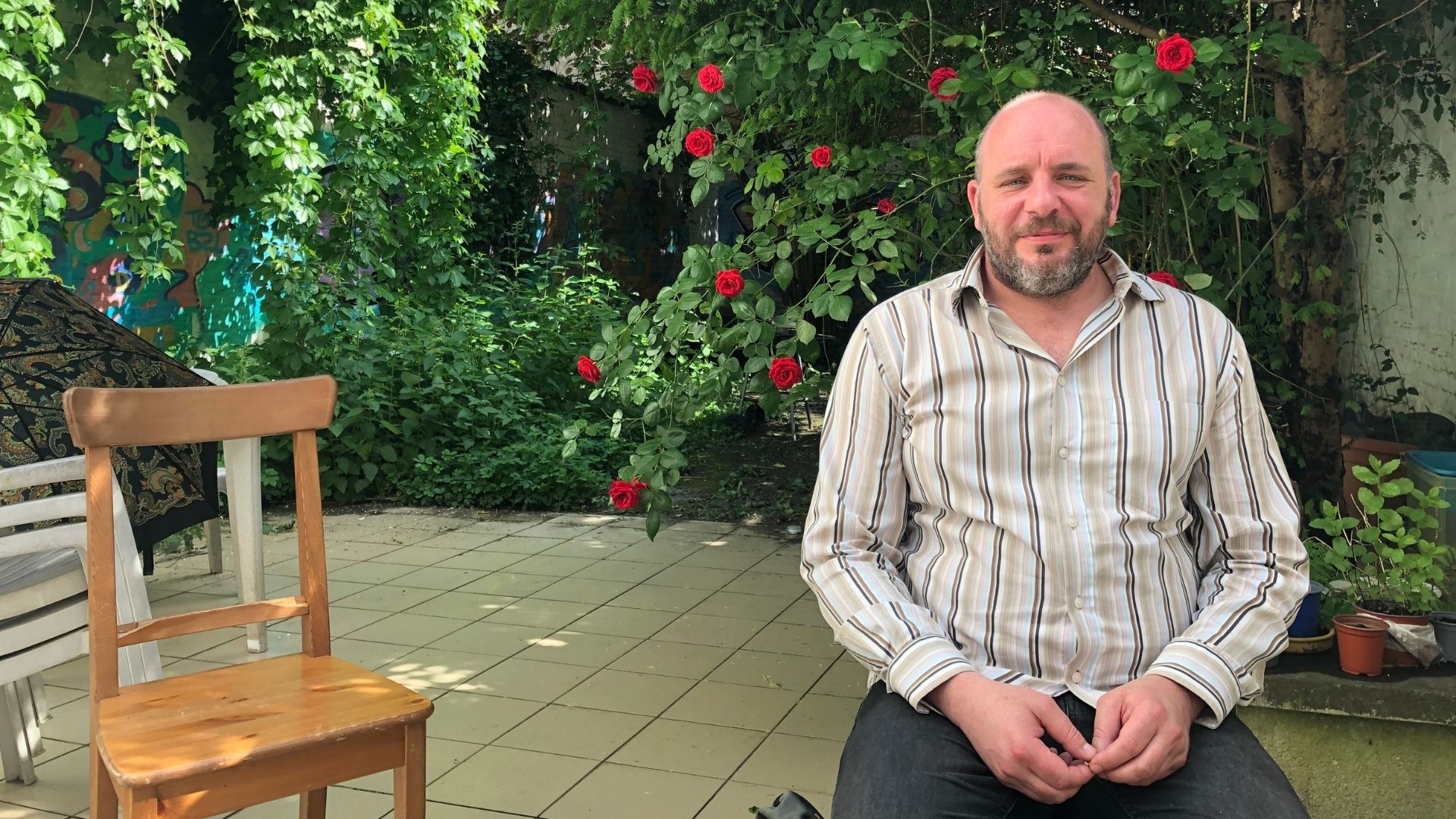
Pierre
"People who come here are ashamed of what they have done," he says. "Let's say they woke up in a pool of their own vomit. They will open up to me quicker than they will with others because I have lived through the same things.”
Pierre strives to inspire others with his own success story. "They hear I took heroin for years and now they see that I have a job, a normal life," he says. What does he mean by 'normal life'? "It is being happy with what you are, living without regrets. Instead of waking up in the morning and asking, 'Why am I alive?' you get up and go about your business."
This is in stark contrast to how the 48-year-old felt while his drug habits were in full swing. "When you take drugs every day for years on end, you feel nothing. You get detached. And on top of dehumanising yourself, society views drug addicts as thieves and liars," Pierre says.
Paradigm shift
Dismantling harmful stereotypes and involving individuals with lived experience of addiction in the debate are essential to rendering Brussels' drug policy more humane, the city's support network argues. DUNE and GATE are two voices calling out for a paradigm shift based on a less punitive attitude to drug consumption. The current emphasis on security measures does nothing but further stigmatise the individuals at the heart of the issue, they say, and the public health crisis will simply not go away without an attempt to restore human dignity before anything else.
The official government response has not yet lived up to these values. 'Plan Midi' is a 22-point plan adopted in September 2023, aiming to clean up drug use around the South station by arresting drug users and increasing police presence. Its proponents are keen to use the model in other hotspot areas, but the strategy has been widely criticised for displacing drug consumption to other sites such as Porte de Hal rather than eliminating it.
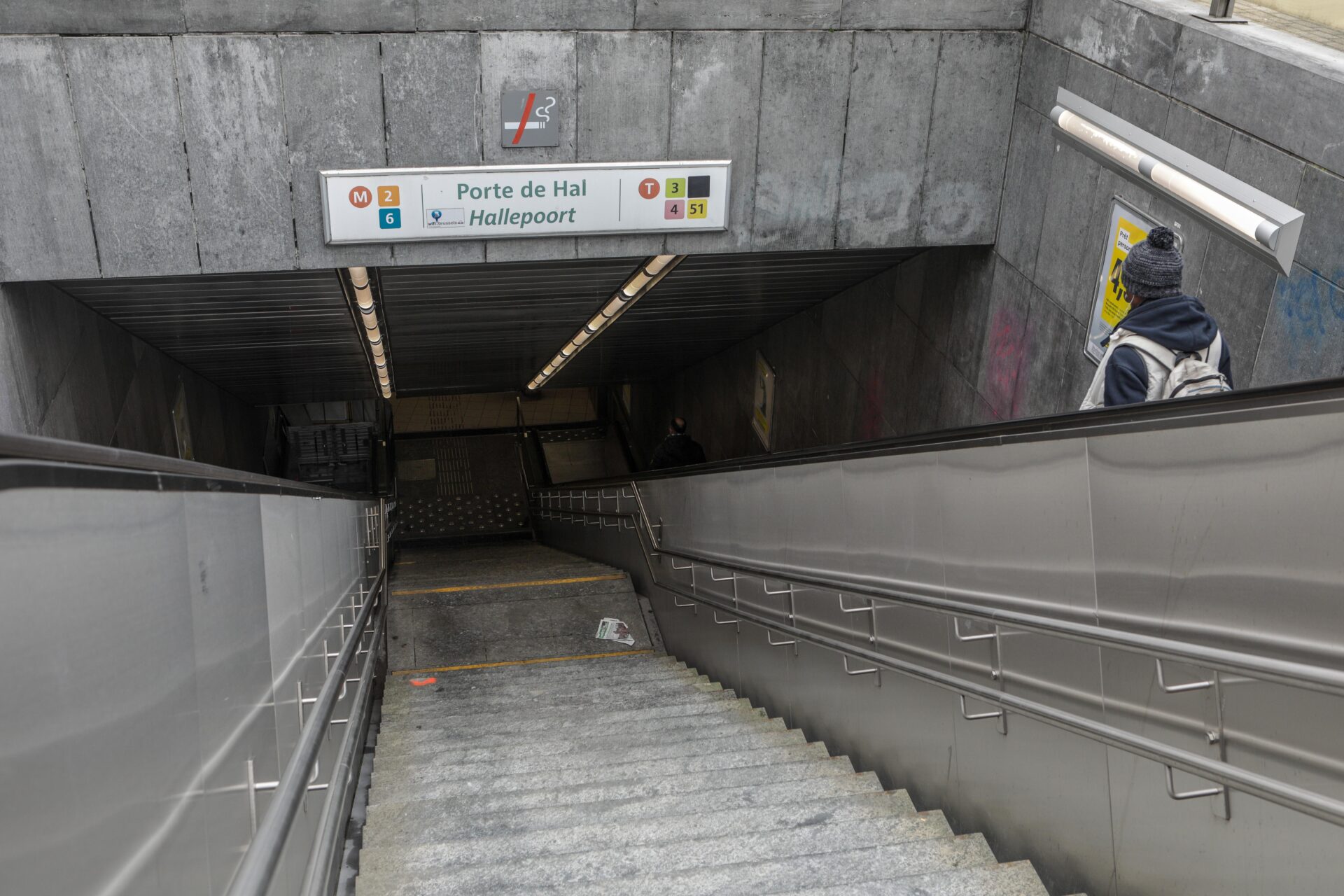
Porte De Hal has become notorious for public drug use. Credit: Belga / Paul-Henri Verlooy
A bout of shootings in and around Saint-Gilles in February only fuelled public appetite for such crackdowns, however: an Ipsos poll conducted just after the string of violent incidents found that 69% of Brussels residents want more police on the streets and 78% think drug users should be punished more severely.
As politicians dash to ramp up security in this context, cash-strapped social groups are paying the price in Brussels. The homeless sector (where the most extreme cases of drug addiction materialise) went on strike for the first time in five years in March, demanding better investment in infrastructure that is currently "saturated" and unable to provide for the people they are mandated to care for.
Related News
- Drug consumption space prevents 16,000 drug intakes on Brussels' streets
- 'They consume less here': Inside the Brussels centre supervising drug addiction
- 'Like zombies': What is driving the crack crisis around Porte de Hal?
In immediate terms, the sector needs money. But a significant attitude change is essential too, says Transit spokesperson Bruno Valkeneers, who has been a long-time advocate for decriminalisation. "Society is probably not culturally ready for a profound paradigm shift," he says, but decriminalisation is the first step towards de-stigmatising addiction and treating addicts like human beings.
"Other movements such as women's rights made progress when those individuals started speaking up," he explains. "Prohibition creates an underground dimension and a taboo. Decriminalisation will bring these individuals into the conversation."
Valkeneers is adamant that addiction should be seen for what it is: an illness, not a crime. More and more research is making the same argument, and drug consumption rooms are gaining ground across Europe as a result – there are now 100 scattered across the continent.
Most importantly, they get results. "Users tell us they consume less when they come here," Valkeneers says. "When you create a service adapted to people’s needs, people will come."
Local political buy-in is growing, with mayors including Philippe Close at the City of Brussels, Saint-Gilles' Jean Spinette and Etterbeek's Vincent De Wolf all calling for the creation of more centres. However, they are viewed by proponents as a means rather than an end, and GATE's legal precarity means that it risks being shut in the event of anything going wrong (an overdose, for instance). Consumption rooms are not enough on their own to cope with an overwhelming rise in drug use and the interconnected issue of homelessness.
At DUNE, Pierre warns that drugs are often a consequence of a downward social spiral. "Addiction is rarely a choice," says Pierre. "People take drugs when their lives fall apart." By accompanying rather than punishing addicts, these lives could be put back together.

